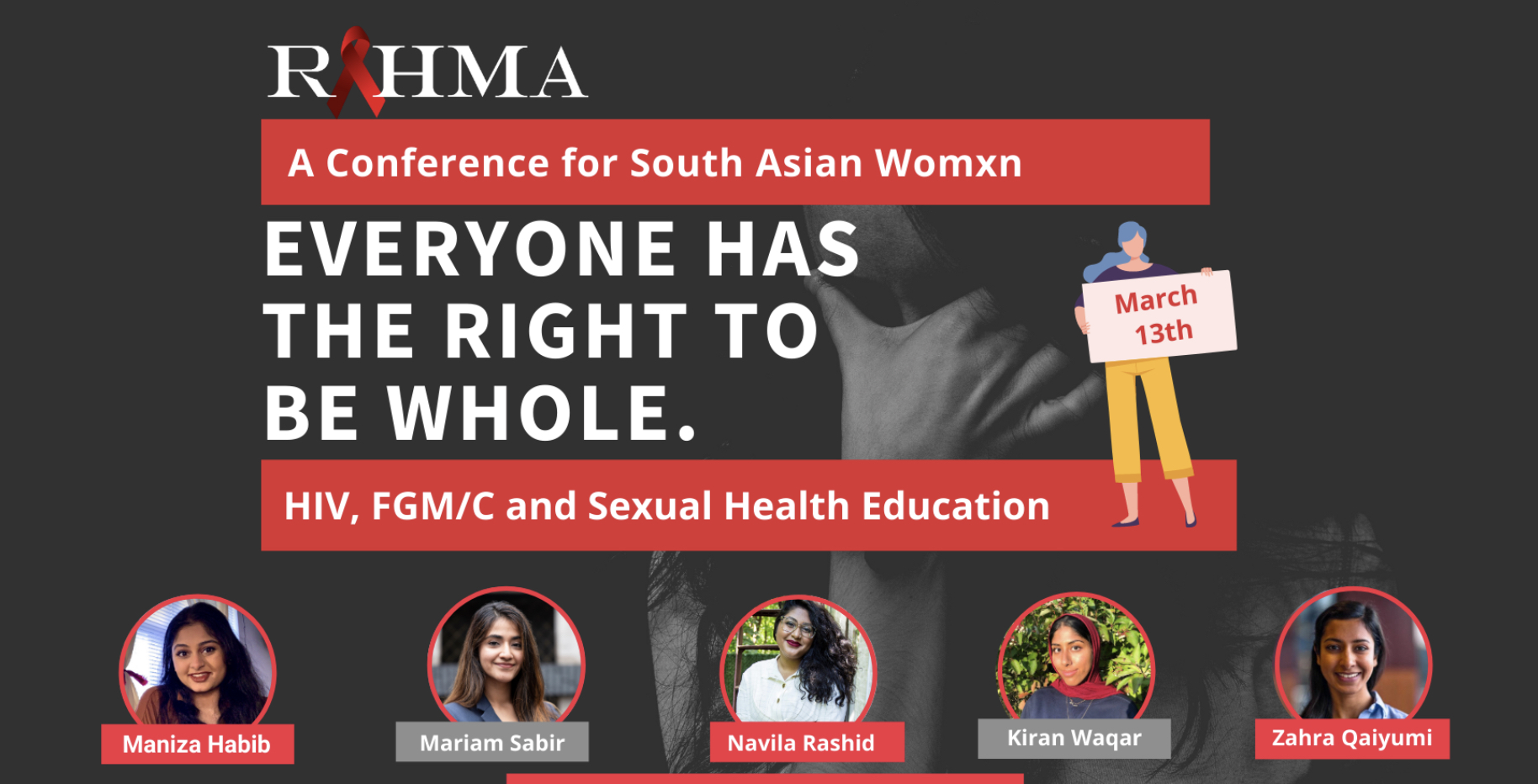by Zahra Qaiyumi
Sahiyo partnered with RAHMA and HEART on March 13 to host the My South Asian Sisters (MYSAS) workshop. The conference engaged women of South Asian descent in Washington, D.C. to take control of their sexual health, embrace their diverse needs, develop a healthy outlook on body positivity, become effective advocates against female genital mutilation/cutting (FGM/C) and gender-based violence (GBV), and address HIV stigma. MYSAS was funded through a grant from the D.C. Mayor’s Office of Asian American and Pacific Islander Affairs. The day-long event brought together South Asian women working in social work, public health graduate students and those completing undergraduate studies, among others. Speakers included Maniza Habib, Mariam Sabir, Navila Rashid, Kiran Waqar, and myself.
The MYSAS workshop was interactive, with ample opportunity for participants to share thoughts, ask questions, and learn from one another. Sharing knowledge about FGM/C and planting seeds for others to become involved with work on gender-based violence was one of the most inspiring parts of the workshop. It can be challenging to find spaces for South Asians to come together and focus on topics affecting the South Asian community as a whole. Workshops like these allow for collaboration between organizations and individuals who are working to empower South Asian communities, and create opportunity for projects and programming that might otherwise not have been possible.
As a workshop host, I spent most of my time-sharing knowledge about FGM/C, including existing research and statistics, as well as personal experiences and advocacy work. However, one of the most salient takeaways from this workshop resulted from a conversation with a participant about inclusive language. There is a general lack of data surrounding who and how many people undergo FGM/C. This includes individuals that do not identify as female and are FGM/C survivors. This prompted a discussion about transitioning to language that focuses on body parts rather than gendering the FGM/C survivor. For example, we discussed utilizing “person with a uterus/vagina/vulva.” This and other conversations during the MYSAS workshop illustrate the importance of programming that brings together those working in the GBV space so they may learn from and collaborate with each other.

